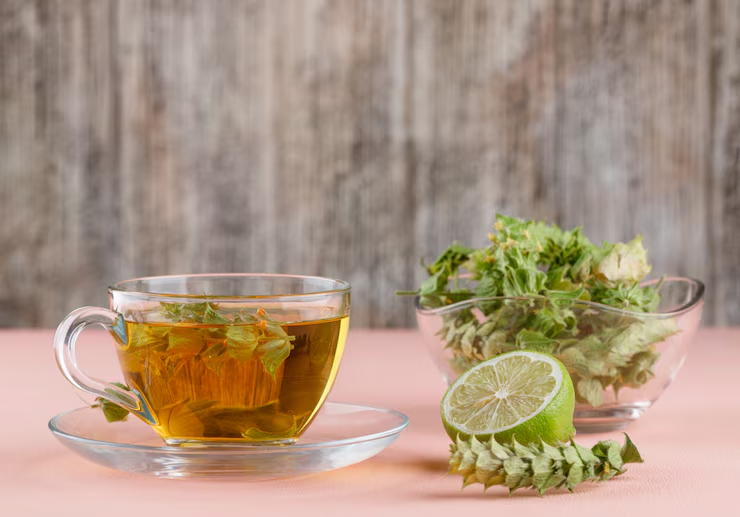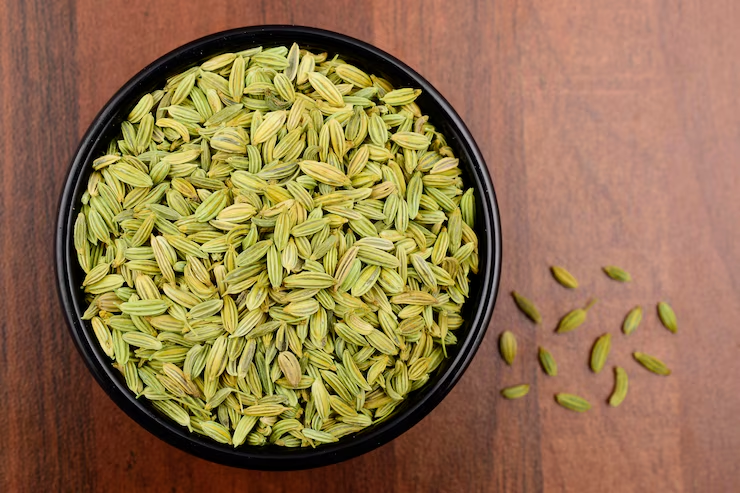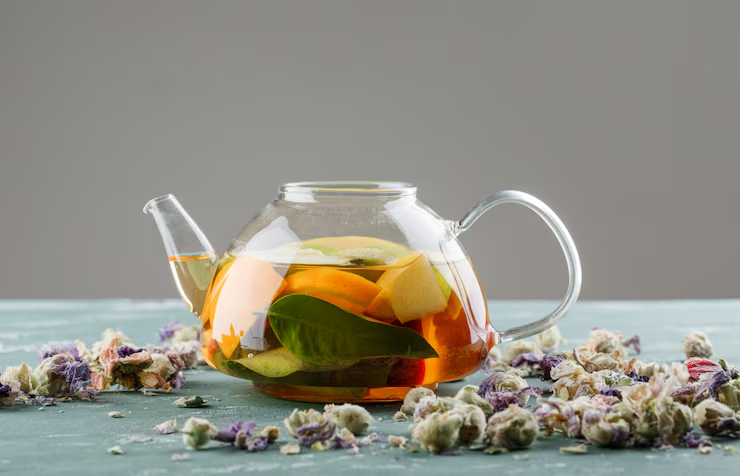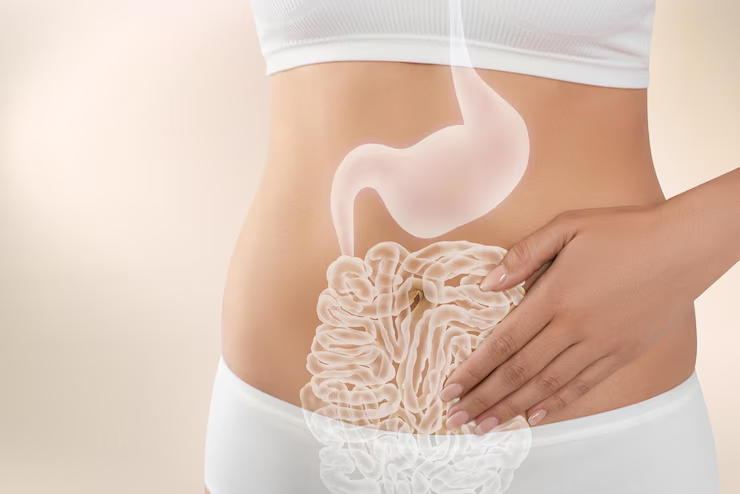Bloating is a common digestive issue that affects people across all ages and lifestyles. It can occur after overeating, consuming gas-producing foods, or as a result of underlying digestive conditions. Symptoms may include a swollen or tight belly, pressure, and excessive gas. While it’s often temporary, the discomfort can interfere with daily activities and leave you feeling sluggish.
Whether bloating happens occasionally or more frequently, it can be both physically and mentally frustrating. You might feel heavier, more tired, or even self-conscious about your appearance. While over-the-counter options are available, many prefer a gentler approach that addresses the root cause without harsh chemicals or side effects.
The good news is that there are effective natural remedies for bloating that can bring quick relief. These include herbal teas, staying hydrated, eating slowly, and incorporating gut-friendly foods like ginger, peppermint, and probiotics. Simple lifestyle changes combined with these remedies can help reduce bloating and support better digestion naturally.
In this article, we’ll explore the causes and effects of bloating on your health and provide the top 8 natural remedies that can help you feel more comfortable and improve your digestive health overall.
What is Bloating ?

Bloating is the feeling of tightness or fullness in the stomach, often accompanied by a visibly swollen or distended abdomen. It’s a common issue that many people experience, especially after meals. This sensation can make your stomach feel stretched and uncomfortable, sometimes even painful.
For many, bloating occurs after eating certain foods or overeating in general. However, in some cases, the discomfort can linger throughout the day, regardless of meals. This can make it difficult to carry out normal activities or feel at ease in your body.
In addition to the physical swelling, bloating often comes with other digestive symptoms. These may include excessive gas, burping, or a general feeling of pressure in the belly area. You may also experience mild to moderate indigestion or stomach cramps.
Overall, bloating can create a sense of heaviness and discomfort that affects your energy and mood. Identifying triggers and making simple lifestyle or dietary changes can help ease symptoms and improve digestive health.
Common Causes of Bloating
Overeating: Eating large meals or consuming food too quickly can overwhelm your digestive system, leading to bloating.
Gas Production: The digestion of certain foods, especially those high in fiber, can produce gas as a byproduct. Foods like beans, lentils, broccoli, onions, and carbonated drinks are notorious for causing bloating.
Food Intolerances: Lactose intolerance, gluten sensitivity, and other food intolerances can cause bloating because your body has trouble digesting certain substances.
Digestive Disorders: Conditions like irritable bowel syndrome (IBS), celiac disease, or inflammatory bowel disease (IBD) often involve bloating as one of their primary symptoms.
Hormonal Changes: For women, bloating can occur during their menstrual cycle due to hormonal fluctuations.
Constipation: If bowel movements are infrequent, stool can build up in the intestines, leading to bloating and discomfort.
Stress and Anxiety: Stress can trigger digestive issues, including bloating, because it impacts how your digestive system functions.
High-Sodium Diets: Consuming excessive amounts of salt can cause your body to retain water, leading to bloating.
Bloating Effects on Health
While bloating is often considered a minor inconvenience, it can have significant effects on your overall well-being if left unchecked. Here are a few ways bloating can impact your health:
Discomfort and Pain: Persistent bloating can cause feelings of fullness, cramping, and abdominal pain. In some cases, bloating can be so uncomfortable that it interferes with daily activities.
Digestive Dysfunction: If bloating is a symptom of an underlying digestive disorder, it may point to larger issues like IBS, which can further disrupt digestion and cause symptoms like diarrhea, constipation, or nausea.
Low Energy Levels: When the digestive system isn’t functioning properly, it can drain your energy. The feeling of constant bloating or fullness can leave you feeling lethargic or fatigued.
Decreased Quality of Life: Persistent bloating can affect self-esteem, cause embarrassment, and reduce your confidence. It may make you hesitant to go out or participate in social events.
Increased Risk of Dehydration: If bloating is related to constipation, it can lead to dehydration, further complicating your digestion and overall health.
Interference with Nutrient Absorption: Severe bloating can disrupt the body’s ability to absorb essential nutrients from food, leading to deficiencies over time.
Top Natural Remedies for Bloating
If you’re looking to alleviate bloating naturally, several home remedies can provide relief. From dietary changes to herbal remedies and lifestyle adjustments, here are the top 8 effective natural remedies for bloating.
Peppermint Tea

Peppermint is widely valued for its calming effects on the digestive system. It has been used for generations to ease discomfort and support gut health. One of its key active compounds, menthol, plays a significant role in providing relief from common digestive complaints.
Menthol helps relax the muscles in the gastrointestinal tract, which can reduce cramping, gas buildup, and bloating. By calming these muscles, peppermint allows trapped gas to pass more easily and helps the digestive process move more smoothly. This makes it especially helpful after meals or during periods of digestive upset.
Among the many natural remedies for bloating, peppermint stands out for its gentle yet effective action. Whether enjoyed as a tea, taken in capsule form, or used as an essential oil, peppermint can offer noticeable relief from bloating and digestive discomfort in a natural way.
How to Use: Sip on a cup of peppermint tea after meals, or you can chew peppermint gum to stimulate digestion and reduce bloating.
Why It Works: Peppermint’s antispasmodic effects help relax the muscles in the intestines, allowing gas to pass more easily and reducing the feeling of fullness and bloating.
Ginger
Ginger is a powerful root known for its effectiveness in easing digestive problems, especially bloating. It’s commonly used in traditional medicine and home remedies to calm the stomach and promote overall digestive comfort.
One of the key compounds in ginger is gingerol, which has anti-inflammatory and muscle-relaxing properties. Ginger helps improve digestion by speeding up the movement of food and gas through the digestive tract. This action can reduce the feeling of fullness, tightness, and pressure caused by bloating.
Among the top natural remedies for bloating, ginger is both easy to find and simple to use. You can enjoy it as a tea, add it to meals, or take it as a supplement. Regular use may help keep your digestive system running smoothly while offering quick relief from bloating and gas.
How to Use: You can consume ginger in various forms, such as ginger tea, raw ginger, or ginger capsules. Drinking a cup of ginger tea after meals can help alleviate bloating and prevent discomfort.
Why It Works: Ginger helps stimulate the digestive enzymes and promotes healthy gut motility, reducing the feeling of bloating.
Fennel Seeds

Fennel seeds have long been used in traditional remedies to ease digestive discomfort. Known for their mild, sweet flavor, these seeds are especially effective in reducing bloating and relieving gas. They are often consumed after meals to support healthy digestion.
The active compounds in fennel seeds help relax the muscles of the intestinal wall. This relaxation makes it easier for trapped gas to move through the digestive system, reducing pressure and the feeling of fullness. Fennel also has anti-inflammatory properties that can soothe an irritated gut.
As one of the trusted natural remedies for bloating, fennel seeds are both gentle and effective. You can chew them raw, brew them into a tea, or add them to dishes. Regular use may help keep your digestion balanced and reduce the frequency of uncomfortable bloating.
How to Use: You can chew on fennel seeds after meals, or brew them into a tea by steeping 1-2 teaspoons of fennel seeds in hot water for about 10 minutes.
Why It Works: Fennel has carminative properties, which means it helps to expel gas from the digestive tract and reduce bloating.
Apple Cider Vinegar
Apple cider vinegar (ACV) is often used as one of the natural remedies for bloating. Many people turn to ACV because it supports the digestive process and helps ease discomfort after eating. It’s especially helpful when bloating is caused by heavy or greasy meals.
ACV works by increasing the amount of stomach acid, which improves the breakdown of food. When food is properly digested, it’s less likely to ferment in the gut and cause gas or bloating. This can make meals feel lighter and more comfortable in the stomach.
As a natural remedy, ACV can be taken before meals—usually one tablespoon mixed in a glass of water. While it may not work for everyone, it’s considered one of the gentler and more common natural remedies for bloating, especially when used along with other healthy lifestyle choices.
How to Use: Mix 1-2 tablespoons of apple cider vinegar in a glass of warm water and drink it before meals.
Why It Works: ACV helps balance stomach acid levels, which can improve digestion and reduce bloating caused by acid reflux or sluggish digestion.
Activated Charcoal

Activated charcoal is commonly used as one of the natural remedies for bloating. It works by trapping excess gas in the digestive tract, which helps reduce pressure, discomfort, and the feeling of fullness. Many people find it helpful after eating gas-producing foods.
This natural substance is especially effective when bloating is caused by gas build-up in the intestines. It absorbs the gas and toxins, preventing them from creating that tight, uncomfortable sensation in the stomach. It can be taken in capsule or powder form, usually before or after meals.
As a part of natural remedies for bloating, activated charcoal is best used occasionally and under guidance, as it can also absorb nutrients and medications. When used wisely, it can offer fast relief and support digestive comfort, especially when paired with other healthy habits and dietary choices.
How to Use: Take activated charcoal capsules (typically 500 mg) before meals. However, be sure to follow the dosage recommendations on the label.
Why It Works: Activated charcoal binds to gas and toxins in the digestive tract, reducing bloating and discomfort.
Probiotics
Probiotics are live bacteria and yeast that support a healthy gut, making them one of the effective natural remedies for bloating. They help maintain a balanced gut microbiome, which plays a key role in digestion and overall well-being. A healthy gut often means less gas and fewer digestive problems.
When the gut flora becomes imbalanced—because of stress, poor diet, or illness—it can lead to bloating, discomfort, and irregular digestion. Probiotics help restore this balance by increasing the number of good bacteria in the digestive system, which can improve digestion and reduce bloating.
As part of natural remedies for bloating, probiotics can be found in foods like yogurt, kefir, and fermented vegetables, or taken as supplements. Regular use can help prevent bloating and support long-term digestive health in a gentle, natural way.
How to Use: You can consume probiotics in the form of supplements or eat fermented foods like yogurt, kefir, sauerkraut, and kimchi.
Why It Works: Probiotics help maintain a healthy gut flora, improving digestion and reducing symptoms of bloating.
Water and Herbal Teas

One of the easiest natural remedies for bloating is staying well-hydrated. Drinking enough water each day supports your digestive system by helping to flush out excess salt and toxins that may cause your body to hold on to water. This can ease the feeling of puffiness and discomfort linked to bloating.
Water also improves digestion by keeping everything in your gut moving smoothly. When you’re dehydrated, digestion can slow down, which may lead to constipation and bloating. Drinking fluids throughout the day can help prevent these issues and keep your digestive system functioning properly.
Herbal teas are another gentle way to ease bloating. Chamomile, ginger, and fennel teas are known to relax the digestive muscles, reduce gas, and support overall gut health. These natural remedies for bloating are simple, soothing, and easy to add to your daily routine.
How to Use: Drink plenty of water throughout the day to keep your body hydrated and flush out excess sodium. You can also enjoy herbal teas, which have anti-inflammatory and soothing properties.
Why It Works: Water helps reduce bloating by promoting better digestion and preventing constipation, while herbal teas soothe the digestive tract and promote overall gut health.
Avoiding Gas-Producing Foods
One of the practical natural remedies for bloating is identifying and avoiding foods that trigger gas and discomfort. Some foods are known to cause bloating more than others, especially in sensitive individuals. Recognizing these triggers is the first step in reducing symptoms.
Common bloating culprits include beans, cabbage, onions, and dairy products—particularly for people with lactose intolerance. These foods can produce excess gas in the digestive system or be difficult to break down, leading to uncomfortable bloating and pressure in the abdomen.
Temporarily limiting or avoiding these foods can make a noticeable difference. This approach, combined with other natural remedies for bloating like drinking water or using probiotics, helps support a healthier digestive system. Over time, you may be able to reintroduce certain foods in smaller amounts or alongside digestion-friendly choices.
How to Use: Keep track of the foods that tend to make you bloated and try eliminating or reducing them in your diet. Opt for low-bloating alternatives.
Why It Works: By identifying and avoiding foods that trigger bloating, you can reduce the frequency and intensity of bloating episodes.
Conclusion

Bloating can be uncomfortable and frustrating, but the good news is that it doesn’t have to be a permanent problem. By understanding what causes bloating—like gas-producing foods, poor digestion, or food intolerances—you can take simple steps to feel better. Making small changes, such as eating slowly, staying hydrated, and avoiding trigger foods, can lead to big improvements in how your stomach feels every day.
Instead of turning to quick-fix medications, many people find lasting relief with natural options. From peppermint tea and ginger to probiotics and fennel seeds, there are many gentle ways to soothe your digestive system. These natural remedies for bloating not only ease discomfort but also support overall digestive health.
Including these remedies into your daily routine can help you feel lighter, more energized, and more confident. With a bit of awareness and consistency, you can reduce bloating naturally and enjoy better comfort in your everyday life.
FAQs
Q.1 What are the best natural remedies for bloating ?
Some of the best natural remedies include peppermint tea, ginger, fennel seeds, apple cider vinegar, probiotics, and drinking plenty of water. These support digestion and help relieve gas and stomach discomfort.
Q.2 How quickly do natural remedies for bloating work ?
Some remedies, like peppermint or ginger tea, may provide relief within 30 minutes to an hour. Others, like probiotics, may take a few days or weeks to show full results.
Q.3 Can diet changes really reduce bloating ?
Yes, avoiding gas-producing foods, eating smaller meals, and chewing slowly can significantly reduce bloating and support better digestion.
Q.4 Are herbal teas safe for everyday use ?
Most herbal teas used for bloating are safe in moderation. However, consult a doctor if you’re pregnant, breastfeeding, or taking medication.
Q.5 When should I see a doctor for bloating ?
If bloating is severe, long-lasting, or comes with pain, weight loss, or changes in bowel habits, it’s best to consult a healthcare professional.